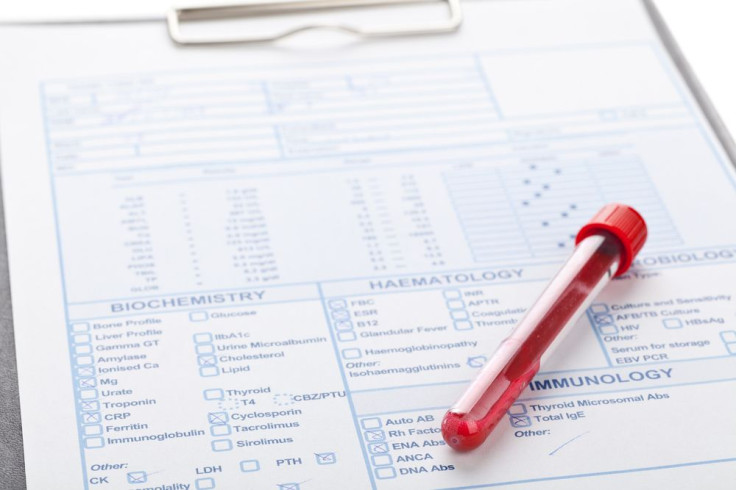Test May Catch MS Years Before Symptoms Develop; Antibody In The Bloodstream Could Represent Early Biomaker

New research shows that a certain antibody associated with multiple sclerosis (MS) may be present in some patients’ blood years before symptoms develop, raising the possibility of effective screening protocols and preventative therapy.
Dr. Viola Biberacher, a researcher at Technical University in Germany and lead author of the new study, said in a press release that the results will help improve care protocols for the debilitating, unpredictable disease that affects millions of people worldwide. "If our results can be replicated in larger populations, our findings may help to detect MS earlier in a subgroup of patients," she explained. "Finding the disease before symptoms appear means we can better prepare to treat and possibly even prevent those symptoms.”
The study, which was presented Sunday at the annual meeting of the American Academy of Neurology, also sheds new light on the complex nature of the disease. Biberacher and colleagues hope that by illuminating a potential early biomarker of MS their paper will help launch a number of new research efforts. “This finding also demonstrates that the antibody development to the KIR4.1 protein, a protein found in some people with MS, precedes the clinical onset of disease suggesting a role of the autoantibody in how the disease develops," Biberacher explained.
For their investigation, the team surveyed 32 former blood donors: 16 who were later diagnosed with MS, and 16 who remained healthy. All participants were of the same sex and in the same age cohort. The researchers looked at antibody levels in blood samples collected up to six years before the onset of MS symptoms.
Biberacher and colleagues found that, while none of the non-MS participants showed signs of the KIR4.1 antibody, nearly half of the MS participants tested positive. The antibodies appeared to be present in the bloodstream several years before the first clinical attack.
Towards Earlier MS Diagnosis
MS is typically classified as an autoimmune disorder — a debilitating condition that turns the body’s own defenses against its most essential parts. Rogue T cells begin to erode myelin, the protective sheath that covers nerves. The subsequent degeneration disrupts communications between essential organs, which eventually results in irreparable nerve damage.
Today, an estimated 400,000 Americans have MS. Although there’s no known cure, an earlier diagnosis may limit the disease's impact on a patient’s everyday life. "The next step is to confirm these findings in larger groups and determine how many years before onset of disease the antibody response develops," Biberacher told reporters.
Published by Medicaldaily.com



























